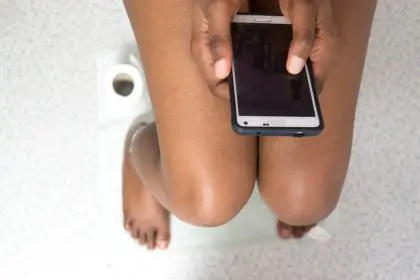Navigating one’s sexual orientation and identity profoundly shapes personal well-being. Yet, the weight of societal expectations often coerces individuals into concealing their true selves, sparking repercussions that extend far beyond personal struggles. The concealment of sexual identity, known as being “in the closet,” imposes a significant toll on mental health, creating a dual existence where authenticity is sacrificed to conform. This suppression not only burdens individuals with psychological distress but ripples outward, impacting broader systems, notably public health. By compelling individuals to hide their authentic selves, society inadvertently contributes to a chain reaction of adverse effects, from heightened mental health challenges to increased strain on health care infrastructures. Unpacking the detrimental impacts of this concealment sheds light on personal struggles. It underscores the urgent need for societal change to alleviate the burden on individuals and the broader public health framework.
The Burden of Secrecy
Being in the closet, referring to the concealment of one’s sexual orientation or identity, imposes a heavy psychological burden. The fear of judgment, discrimination and societal rejection coerces many individuals to lead double lives, hiding their true selves to conform to societal norms.
Mental Health Ramifications
The toll of concealing one’s sexual identity is immense, manifesting in various mental health issues. Studies consistently highlight higher rates of depression, anxiety and even suicidal ideation among individuals who feel compelled to remain in the closet. The psychological distress stemming from hiding one’s true identity contributes significantly to the burden on mental health services.
Impact on Physical Health
The repercussions extend beyond mental well-being. The stress and anxiety associated with concealment can exacerbate physical health conditions. Research has linked prolonged stress to increased risks of heart disease, compromised immune systems and other chronic health issues, burdening public health services with additional medical challenges.
Barriers to Seeking Health Care
Individuals in the closet often face barriers when accessing health care. Fear of discrimination or lack of understanding from health care providers can prevent them from seeking medical attention. Consequently, preventable health issues may escalate, leading to more severe health complications and increased strain on healthcare systems.
Public Health Consequences
The societal repercussions of a closeted existence reverberate throughout public health systems. The cumulative impact of mental health struggles — compounded by the physical health implications — places a substantial burden on health care services, often requiring specialized care and interventions.
Creating Inclusive Environments
Fostering inclusive spaces is imperative to alleviate the public health toll of individuals in the closet. Policies and practices that promote diversity and inclusivity within health care settings can encourage individuals to seek assistance without fear of judgment or discrimination. Training health care professionals to be sensitive to diverse identities is crucial in bridging the healthcare accessibility gap.
Encouraging Acceptance and Support
Societal acceptance and support for diverse sexual orientations and identities play a pivotal role in mitigating the detrimental effects on public health. By fostering an environment of acceptance and understanding, individuals may feel more empowered to embrace their identities openly, leading to improved mental and physical well-being.
The invisible weight of living in the closet, a consequence of societal pressures, exacts a heavy toll on both mental and physical well-being. This burden extends beyond individual experiences, casting a shadow over public health systems as they grapple with heightened demands for mental health support and amplified strain from preventable health concerns. The imperative shift lies in cultivating inclusive environments and nurturing societal acceptance. These proactive measures are pivotal in dismantling the barriers that compel concealment, paving the way for authentic self-expression and reducing the stifling impact on individual health.
Embracing diversity within healthcare settings — coupled with comprehensive education and awareness — promises to foster a more supportive landscape where everyone feels empowered to embrace their identities without fear of judgment or discrimination. By championing acceptance and inclusivity, we chart a course toward healthier, more liberated lives for individuals while relieving the burden on overburdened public health systems. It’s a collective stride towards a brighter, more compassionate future for all.
This story was created using AI technology.















